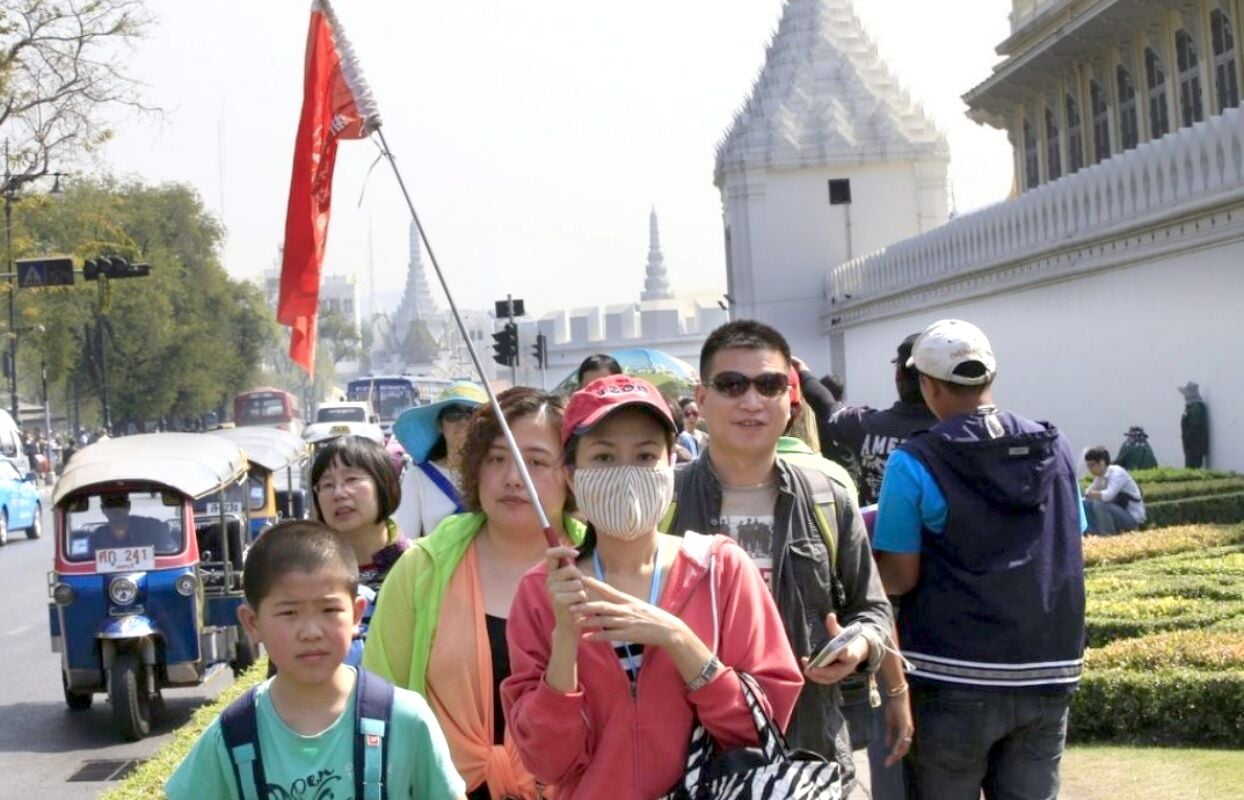Tour groups for seniors offer a unique blend of adventure, relaxation, and social interaction, catering to the diverse needs and preferences of older adults. From escorted tours providing comprehensive support to independent travel packages offering flexibility, the options are vast. This guide explores the various types of senior tours, addressing accessibility, health considerations, budgeting, choosing reputable operators, and pre- and post-trip planning to ensure a safe, enjoyable, and memorable experience.
We delve into the specifics of different tour types, comparing escorted tours, independent travel, and group cruises, highlighting their respective advantages and disadvantages. We also provide crucial information on accessibility features, health and safety protocols, budgeting strategies, and selecting trustworthy tour operators. The aim is to equip senior travelers with the knowledge they need to plan and enjoy a fulfilling and worry-free travel experience.
Choosing a Reputable Tour Operator
Selecting the right tour operator is crucial for a smooth and enjoyable senior travel experience. A reputable operator prioritizes the safety, comfort, and well-being of their older clientele, offering tailored services and addressing the specific needs of this demographic. Choosing poorly can lead to significant inconvenience, financial loss, or even safety risks.Choosing a reputable tour operator requires careful consideration of several key factors.
Thorough research and due diligence are essential to ensure a positive travel experience. Failing to do so can result in disappointment and unforeseen problems.
Remember to click great places to go on vacation to understand more comprehensive aspects of the great places to go on vacation topic.
Criteria for Evaluating Tour Operator Reputation
Several critical factors contribute to assessing a tour operator’s trustworthiness. These criteria help travelers identify operators committed to providing high-quality, safe, and reliable senior travel experiences. Consider the operator’s licensing, insurance coverage, and overall track record.
- Licensing and Accreditation: Verify that the tour operator holds the necessary licenses and permits to operate legally in the relevant jurisdictions. Look for affiliations with reputable travel industry associations.
- Insurance Coverage: Confirm that the operator carries adequate liability and travel insurance to protect travelers against unforeseen circumstances, such as medical emergencies, trip cancellations, or baggage loss.
- Years of Experience: Established operators with a long history often have a better understanding of the specific needs and preferences of senior travelers.
- Customer Reviews and Testimonials: Examine online reviews from previous clients on various platforms, paying close attention to comments related to trip organization, customer service, and overall satisfaction.
- Financial Stability: Investigate the tour operator’s financial stability to minimize the risk of potential bankruptcies or operational disruptions that could affect your trip.
- Accessibility and Inclusivity: Check if the operator offers services tailored to the needs of senior travelers with disabilities or specific health requirements.
Questions to Ask a Tour Operator, Tour groups for seniors
Before committing to a tour, proactively addressing specific concerns ensures suitability and safety. Open communication with the operator is essential for clarifying expectations and addressing potential issues.
- Detailed Itinerary and Daily Schedule: Request a detailed itinerary outlining the daily schedule, including travel times, planned activities, and rest periods. Inquire about the pace of the itinerary and its suitability for senior travelers.
- Accommodation Details: Obtain specific information about the accommodations, including the type of rooms, accessibility features, and proximity to medical facilities.
- Transportation Arrangements: Clarify the type of transportation used throughout the tour, including details about the vehicles and any accessibility considerations.
- Emergency Procedures: Inquire about the operator’s emergency procedures, including contact information for support staff and protocols for handling medical emergencies or other unforeseen events.
- Cancellation and Refund Policies: Thoroughly review the cancellation and refund policies to understand the terms and conditions in case of unexpected circumstances.
- Accessibility for Seniors with Disabilities: If applicable, confirm the tour’s suitability for seniors with disabilities, outlining specific needs and requesting confirmation of appropriate accommodations and support.
Researching and Verifying Credentials and Reviews
Independent verification of a tour operator’s credentials and customer reviews is paramount. Utilizing multiple resources ensures a comprehensive assessment of the operator’s reputation.To verify credentials, check for licensing information on official government websites and verify insurance coverage with the insurer. To assess customer reviews, consult multiple sources such as TripAdvisor, independent travel blogs, and social media platforms. Look for patterns in feedback and consider the volume and recency of reviews.
Be wary of suspiciously positive reviews without any negative feedback. Consider cross-referencing information from multiple sources to get a more balanced perspective.
Pre-Trip Planning and Preparation
Thorough pre-trip planning is paramount for a smooth and enjoyable senior group tour. Careful consideration of packing essentials, itinerary details, and clear communication with the tour operator will significantly enhance the overall experience, minimizing potential stress and maximizing the enjoyment of the trip. This section Artikels key aspects of pre-trip preparation for senior travelers.
Essential Packing Checklist for Senior Travelers
Packing efficiently and strategically is crucial for senior travelers. Overpacking can lead to discomfort and inconvenience, while forgetting essential items can disrupt the trip. The following checklist categorizes items by necessity and importance, ensuring a well-prepared journey.
- High-Priority Essentials: Passport/ID, medications (with copies of prescriptions), travel insurance information, emergency contact list, sufficient cash and credit cards, any necessary mobility aids (canes, walkers, etc.).
- Clothing and Footwear: Comfortable, loose-fitting clothing suitable for the climate, sturdy and comfortable walking shoes, layers for varying temperatures, rain gear, and a hat.
- Toiletries and Personal Items: Medications (in original containers), toiletries in travel-sized containers, any personal care items (hearing aids, glasses, etc.), a small first-aid kit with essential supplies.
- Documents and Electronics: Copies of all important documents (passport, travel insurance, itinerary), travel adapters if needed, a fully charged cell phone and portable charger.
- Optional but Recommended: A comfortable travel pillow, a small backpack for day trips, binoculars (for sightseeing), reading material, a journal and pen.
Sample Pre-Trip Itinerary for a Senior Group Tour
A well-structured itinerary is vital for managing expectations and ensuring a smooth travel experience. This sample itinerary illustrates key elements, including transportation, accommodation, and planned activities. Specific details will vary based on the tour’s destination and duration.
Day 1: Arrival at [Airport Name], transfer to [Hotel Name] via pre-arranged coach transportation. Check-in, welcome briefing by tour guide, and a relaxing evening.
Day 2: Guided tour of [City/Landmark], including visits to [Specific Locations]. Lunch at a local restaurant. Afternoon at leisure for personal exploration.
Day 3: Day trip to [Destination], utilizing a comfortable coach with restroom facilities. Guided tour and free time for exploration. Return to hotel in the evening.
Day 4: Relaxation day with optional activities such as a gentle walk in a park or a visit to a local museum. Evening farewell dinner.
Day 5: Check-out from hotel, transfer to [Airport Name] for departure.
Accommodation: [Hotel Name], offering comfortable rooms with accessible options for senior travelers, including elevators and ramps where necessary. The hotel should be centrally located and within easy reach of key attractions.
Transportation: Air-conditioned coaches with comfortable seating and ample legroom will be used for all inter-city travel. Local transportation will be a mix of walking and pre-arranged taxis or public transportation where appropriate.
Pre-Trip Communication Between Tour Operator and Senior Travelers
Effective communication is crucial to ensure a successful tour. The tour operator should proactively communicate important details such as itinerary updates, emergency contact information, packing recommendations, and any necessary travel advisories. Senior travelers should also feel comfortable contacting the operator with any questions or concerns they may have before the tour begins. This open dialogue fosters trust and ensures a positive travel experience.
For example, a pre-trip email or phone call confirming travel arrangements, addressing any health concerns, and providing a point of contact for emergencies would be beneficial. This ensures a smooth and enjoyable experience for all participants.
Post-Trip Feedback and Reviews: Tour Groups For Seniors

Gathering comprehensive feedback from senior travelers is crucial for refining tour offerings and ensuring future trips meet the specific needs and expectations of this demographic. Effective feedback mechanisms allow tour operators to identify areas of excellence and areas needing improvement, ultimately enhancing the overall travel experience and fostering customer loyalty.Post-trip feedback collection and analysis is a systematic process that involves several key steps, from the initial design of the feedback mechanism to the implementation of changes based on the data gathered.
This process allows tour operators to not only improve their services but also to demonstrate a commitment to customer satisfaction, building trust and positive word-of-mouth referrals.
Effective Feedback Collection Methods
Several methods can be employed to effectively collect feedback from senior travelers. A multi-faceted approach often yields the most comprehensive and nuanced results. Consider the unique needs and preferences of senior travelers when selecting these methods.
- Post-Trip Surveys: Digital surveys, delivered via email, offer convenience and allow for easy data analysis. They can include both multiple-choice and open-ended questions, enabling a balance of quantitative and qualitative data. Consider offering a small incentive, such as a discount on a future tour, to encourage participation.
- In-Person Feedback Sessions: On the final day of the tour, a brief, structured session allows for immediate feedback and personal interaction. This method facilitates more in-depth conversations and can address any immediate concerns.
- Phone Calls: A personal phone call a few days after the tour concludes provides a more intimate setting for feedback. It allows for a more conversational approach and can help address any lingering issues or questions.
- Postcards: A simple postcard with a few key questions can be a low-pressure, easy way for seniors to share their thoughts and feelings.
Analyzing and Utilizing Feedback
Analyzing feedback requires a structured approach. Quantitative data from surveys can be analyzed statistically to identify trends and patterns. Qualitative data from open-ended questions and personal conversations needs careful review to identify recurring themes and sentiments.For example, consistent negative comments about the pace of the tour might indicate a need for more frequent rest stops or a slower itinerary.
Positive feedback about a specific guide might highlight the importance of staff training and selection. This analysis should inform concrete changes to improve future tours. For example, if many respondents mention discomfort with long bus rides, the tour operator could adjust the itinerary to include shorter travel times or more frequent breaks.
Senior Group Tour Review Template
A comprehensive review should provide a clear and concise summary of the tour experience. The following template can be used as a guide:
| Aspect | Rating (1-5 stars) | Comments |
|---|---|---|
| Value for Money | Did the tour cost align with the quality and experiences offered? Were there any unexpected expenses? | |
| Accommodation | Were the accommodations comfortable, clean, and accessible? Were the locations convenient? | |
| Transportation | Was the transportation reliable, comfortable, and accessible? Were there any delays or issues? | |
| Tour Guide | Was the tour guide knowledgeable, friendly, and helpful? Did they effectively communicate information? | |
| Itinerary | Was the itinerary well-paced and enjoyable? Were there sufficient opportunities for relaxation and free time? | |
| Overall Experience | Would you recommend this tour to other senior travelers? What were the highlights and lowlights of the trip? |
“Effective feedback mechanisms are not merely tools for identifying problems; they are instruments for building stronger relationships with clients and improving services based on real-world experiences.”
Planning a senior group tour requires careful consideration of various factors, from choosing the right type of tour and operator to ensuring accessibility and addressing health and safety concerns. By understanding the nuances of budgeting, pre-trip preparation, and post-trip feedback mechanisms, seniors can maximize their enjoyment and create lasting memories. This comprehensive guide aims to empower older adults to embark on enriching travel experiences with confidence and peace of mind, ensuring their journey is both rewarding and safe.


